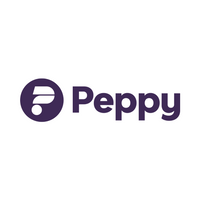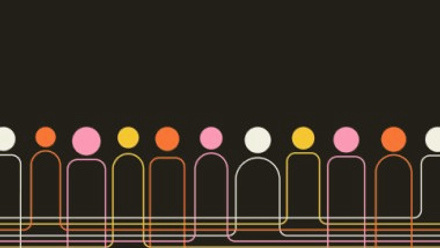Why age diversity matters - and how employers can use benefits to help retain older workers
Today, it’s not enough for employers to simply embrace diversity – they must actively seek and promote it. Hot topics around diversity, equity and inclusion (DE&I) include ethnic, gender and LGBTQ+ diversity, neurodiversity ... and generational diversity.
Why? Because a diverse workforce is a successful one and has a serious competitive advantage. According to research by McKinsey, gender-diverse companies are 15% more likely to outperform their peers. Age diversity is similarly beneficial. Simply by increasing the share of older workers by 10%, companies can generate a one-off gain worth more than a year of growth.
Yet age diversity can be hard to achieve. Earlier this year, our research with REBA revealed that almost one-quarter (24%) of companies struggle to recruit and retain older (50+) talent.
Why does age diversity matter?
We are experiencing a boom in older employees – the labour market is being reshaped. In 2021, 42% of men and 31% of women remained in work at age 65. Plus, with the state pension age increasing to 67 by 2028, many older employees not only want to remain employed, but need to.
Studies show 38% of organisations say age is a driver for better inclusivity and generational diversity benefits the workplace in a multitude of ways. Seasoned employees bring hard-earned wisdom and different perspectives, contributing to a greater diversity of thought and the transfer of key skills. Younger employees, on the other hand, bring fresh ideas and more agility, and are generally more adept at using technology.
Different generations can learn from each other, fostering an environment of greater creativity and innovation. Here’s how employers can use employee benefits to create an inclusive workplace culture that resonates across generations.
Offer flexible benefits to promote a diverse talent pool
Sandwich-generation employees often live with pressures that don’t fit into the traditional 9-5 working day; for example, childcare for children or grandchildren, caring responsibilities for older parents and managing long-term health issues.
Flexible working, including the ability to work from home, compressed working weeks and flexi-hours, can be hugely appealing to mature staff – and the demand is high from older workers. Crucially, flexible working should include remote access to wellbeing benefits, so that staff can take advantage of the full wellbeing package on offer, wherever they are working from and whenever they need extra support.
Older staff are often a workplace’s most senior, most trusted employees. Working remotely should not mean they miss out on any other benefits.
Encourage mental and physical fitness
Healthcare is more than just curing problems and medical issues – employers need to look at their employees’ whole lifestyle to promote healthy habits within the workforce. To encourage a multi-generational, inclusive workplace culture, employers should provide wrap-around health that focuses on awareness and prevention, rather than just cure.
Employees need support, advice and information on lifestyle issues like mental health, healthy eating, exercise, sleep health, gut health and emotional wellbeing, as well as the health ‘red flags’ that can’t be ignored.
Digital health apps give employees access to teams of health and wellbeing experts, from specialist nurses who can advise on issues like menopause, fertility and urology, to highly trained experts in lifestyle health, including nutritionists and personal trainers. Providing employees of all ages with access to holistic mental and physical health support will benefit people of all ages, creating a more resilient, healthier and happier workforce.
Tackle the life stages that cause a fall-out of older employees
We know that the retention of older – particularly female – talent is intrinsically linked to particular life events. Becoming a parent, going through menopause, enduring a traumatic health ordeal like cancer or becoming the carer of an elderly parent are all common yet under-served health issues that can affect wellbeing and productivity and, ultimately, cause top talent to fall out of the workforce.
Employers need to tackle these issues head-on to retain a gender and generational-diverse workforce, or they risk losing valued employees. A proactive, sensitive and inclusive approach from benefits and HR teams is the answer.
Menopause support is one of the top benefits for enhancing DE&I in the workplace, with 95% of employers rating it effective or highly effective. And it seems that support for menopause is here to stay, with 88% of employers, according to an Aon survey, either already offering or planning to offer menopause support in the next two years.
Next-generation healthcare benefits, which connect employees to human experts quickly and remotely, at no cost to the end-user, are increasingly proving able to tackle these health issues with impressive results.
Employee benefits have evolved to become high-impact tools for achieving DE&I targets – not just work perks. By taking action, rather than relying on policies and words, employers will be able to build an inclusive workplace culture and attract and retain talent across all levels of their business.
Supplied by REBA Associate Member, Peppy
Peppy is a global app-based employee benefit giving employees access to expert clinical care in menopause, fertility, pregnancy, and more - trusted by 250+ companies and reaching over 3 million people.








